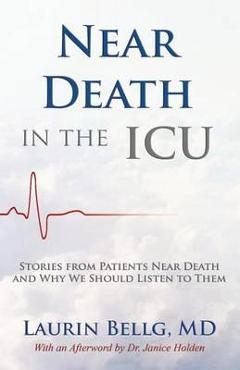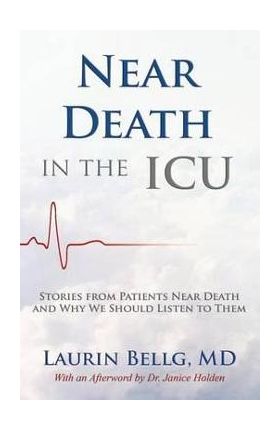Cosul este gol
Conectează-te ca să te putem notifica când primești un răspuns
Near-death experiences are often profoundly meaningful, yet when they are reported, they are frequently met with skepticism and dismissal by medical caregivers and family members. But do we have to fully understand these events to honor the transformative role they often play in the lives of those who experience them? Do we need to prove they are something more than the result of illness, medication or a dying brain to acknowledge their power to impact lives in a positive way? Near-death experiences are often profoundly meaningful, yet when they are reported they are often met with skepticism and dismissal. But do we have to fully understand these events to honor the transformative role they can play in the lives of those who experience them? Do we need to prove they are something more than the result of illness, medication, or a brain under duress to acknowledge their power to impact lives in a positive way? In this book, a seasoned critical care physician takes on the head-scratching phenomenon of the near-death experience and makes a case for not only listening to but acknowledging and helping the experiencer integrate this poorly understood phenomenon of consciousness into their care. Through anecdotal accounts and thoughtful commentary, Dr. Bellg offers her thoughts on what the near-death experience could be but more importantly, how it can be used as a powerful tool toward meaningful change. Near-death experiences are often profoundly meaningful, yet when they are reported they are often met with skepticism and dismissal. But do we have to fully understand these events to honor the transformative role they can play in the lives of those who experience them? Do we need to prove they are something more than the result of illness, medication, or a brain under duress to acknowledge their power to impact lives in a positive way? In this book, a seasoned critical care physician takes on the head-scratching phenomenon of the near-death experience and makes a case for not only listening to but acknowledging and helping the experiencer integrate this poorly understood phenomenon of consciousness into their care. Through anecdotal accounts and thoughtful commentary, Dr. Bellg offers her thoughts on what the near-death experience could be but more importantly, how it can be used as a powerful tool toward meaningful change. Near-death experiences are often profoundly meaningful, yet when they are reported they are often met with skepticism and dismi



